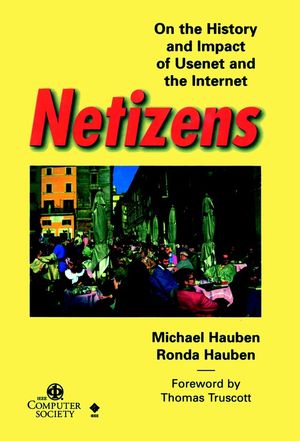Christos H. Papadimitriou: Turing: A Novel About Computation (2003)
Filed under fiction | Tags: · algorithm, computing, history of computing, history of technology, machine, mathematics, technology, turing machine

Our hero is Turing, an interactive tutoring program and namesake (or virtual emanation?) of Alan Turing, World War II code breaker and father of computer science. In this unusual novel, Turing’s idiosyncratic version of intellectual history from a computational point of view unfolds in tandem with the story of a love affair involving Ethel, a successful computer executive, Alexandros, a melancholy archaeologist, and Ian, a charismatic hacker. After Ethel (who shares her first name with Alan Turing’s mother) abandons Alexandros following a sundrenched idyll on Corfu, Turing appears on Alexandros’s computer screen to unfurl a tutorial on the history of ideas. He begins with the philosopher-mathematicians of ancient Greece—”discourse, dialogue, argument, proof… can only thrive in an egalitarian society”—and the Arab scholar in ninth-century Baghdad who invented algorithms; he moves on to many other topics, including cryptography and artificial intelligence, even economics and developmental biology. (These lessons are later critiqued amusingly and developed further in postings by a fictional newsgroup in the book’s afterword.) As Turing’s lectures progress, the lives of Alexandros, Ethel, and Ian converge in dramatic fashion, and the story takes us from Corfu to Hong Kong, from Athens to San Francisco—and of course to the Internet, the disruptive technological and social force that emerges as the main locale and protagonist of the novel.
Alternately pedagogical and romantic, Turing (A Novel about Computation) should appeal both to students and professionals who want a clear and entertaining account of the development of computation and to the general reader who enjoys novels of ideas.
Publisher MIT Press, 2003
Computer Science series
ISBN 0262661918, 9780262661911
284 pages
PDF (updated on 2012-7-25)
Comment (1)Bill Stewart: Living Internet (2000)
Filed under living book | Tags: · computing, email, history of communications, history of computing, history of technology, internet, irc, mailing list, mud, usenet, web

An in-depth reference about the Internet.
The site was written from 1996 through 1999, first published on the web on January 7, 2000, and updated regularly. It has more than 700 pages, 2,000 intra-site links, and 2,000 external links to some of the world’s best online content about the Internet.
The site is authored by Bill Stewart who has used the Internet since 1988, and first appreciated the power of the medium during the Tiananmen Square rebellion in China in 1989, when he saw how the net kept Chinese communities around the world in touch with the events through email and newsgroups, bypassing all government censorship.
View online (HTML)
Comment (0)Michael Hauben, Ronda Hauben: Netizens: On The History And Impact Of Usenet And The Internet (1996)
Filed under book | Tags: · arpanet, community, computing, history of communications, history of computing, history of technology, internet, media history, netizens, unix, usenet, web

Netizens, one of the first books detailing the Internet, looks at the creation and development of this participatory global computer network. The authors conducted online research to find out what makes the Internet “tick”. This research results in an informative examination of the pioneering vision and actions that have helped make the Net possible. The book is a detailed description of the Net’s construction and a step-by-step view of the past, present, and future of the Internet, the Usenet and the WWW.
The book gives you the needed perspective to understand how the Net can impact the present and the turbulent future. These questions are answered: What is the vision that inspired or guided these people at each step? What was the technical or social problem or need that they were trying to solve? What can be done to help nourish the future extension and development of the Net? How can the Net be made available to a broader set of people?
With foreword by Tom Truscott
A print edition was published by the IEEE Computer Society Press, later distributed by John Wiley
ISBN 0-8186-7706-6
authors
publisher
google books
View online (HTML)
Comment (0)
